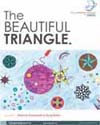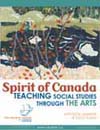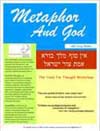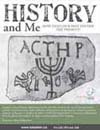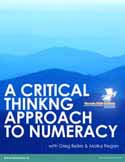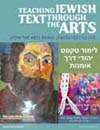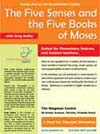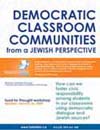Food for Thought Workshops
Food for Thought is an unprecedented professional workshop series created to share the Lola Stein Institute's accumulated knowledge in integrative education with educators world-wide and to show how these unique methods for integrative study, thinking skills and learning through the arts can be universally applied to benefit students at all schools.
Targeted to educators interested in a broader vision of education, the Food for Thought Workshops are based on the premise that teachers need to be nurtured as they are the most important lever of change. The strategy uses the teacher's own enthusiasm for learning as motivation to lead the students to discovery. The workshops re-ignite the teacher's own passion for learning.
Standard teacher training focuses on the delivery of information. By contrast, each of Food for Thought's nine workshops focuses on a generative topic and provides training on creative methodologies for teaching the topic. Through hands-on activities, participants explore the theories behind the new methodologies and walk away with models to inspire their own practice.
Targeted to educators interested in a broader vision of education, the Food for Thought Workshops are based on the premise that teachers need to be nurtured as they are the most important lever of change. The strategy uses the teacher's own enthusiasm for learning as motivation to lead the students to discovery. The workshops re-ignite the teacher's own passion for learning.
Standard teacher training focuses on the delivery of information. By contrast, each of Food for Thought's nine workshops focuses on a generative topic and provides training on creative methodologies for teaching the topic. Through hands-on activities, participants explore the theories behind the new methodologies and walk away with models to inspire their own practice.
The Teaching Garden
Environmental studies develop a child's understanding of how we interrelate with our surroundings. Learn to respond to current events and help students develop the skills, knowledge and perspectives to be engaged and environmentally responsible citizens. See how the schoolyard can be an outdoor learning ground and a space to explore and develop the naturalist intelligence (in us all). Join us for a hands on experience in our teaching garden.
The Beautiful Triangle
|
Let's help our students see math as something beautiful. Explore a unit that engages students in using their knowledge of angles and triangles to create geometric art. All math teachers will value model units that show how mathematics can be both a useful life skill and a way of expressing ideas and emotions.
Intended for Math teachers |
Social Studies through the Arts
|
Are you ready for new ways to teach history, geography and culture? Explore "The Spirit of Canada", a model unit where the student becomes a virtual tourist through Canada. Use this model to learn how to integrate song and art into social studies units that engage students in doing and presenting research.
Intended for General Studies teachers |
Metaphor and God
|
Do you find it challenging to help your students express themselves? Is it while discussing Jewish texts or when writing in language arts class? Learn how literary concepts like metaphors and poetic structures can be integrated with Jewish concepts and texts to enhance understanding. Leave with lessons you can use to develop your students' self-expression.
Intended for Language Arts teachers for grades 4-8 |
Ancient History and Me
|
How does our past inform the present? Explore a unit of history that focuses on the interface between the rise of Ancient Greece and the Jewish encounter with Hellenism. Discover how to use primary sources to connect tensions of the past to conflicts in today's world. Investigate how to structure a culminating task that allows for students to express and consolidate their learning.
Intended for Language Arts and History teachers for grades 4-8 |
A Critical Thinking Approach to Numeracy
|
How do we make sure that students truly understand the math they are doing while they are doing it? What effective strategies build mastery? When should we teach them? How can we get students to reflect on the strategies they choose? Participants will answer these questions and take home strategies and games ready for classroom use.
Intended for Math teachers |
Teaching Jewish Texts through the Arts
|
How do the arts bring Jewish text to life? Find out how students can study original text through the integration of drama, script writing, music and visual arts. The techniques apply to many Judaic narratives. Explore them through a model based on Shemuel Alef/Bet and the Pesach Haggadah.
Intended for Hebrew teachers for grades 5-8 |
The Five Senses and the Five Books of Moses
|
What are the ingredients for a creative unit that teaches a Torah narrative in Hebrew? Mix songs, scripts, games, art and puppets together and stir in an ethical theme. In this workshop, you will participate in model lessons to learn all the ingredients and tools needed to construct your own multi-sensory lessons for teaching the Five Books of Moses.
(Workshop is conducted in English; all texts are in Hebrew). Intended for Elementary Judaics and Hebrew teachers |
Democratic Citizenship from a Jewish Perspective
|
How can Jewish sources foster civic responsibility within our students? Speeches, letters, Talmudic text and other primary sources offer opportunities for discussions on democracy and human rights. Think Heal the World and help students become active, democratic decision-makers in their community.
Intended for Language Arts, Social Science, and Rabbinics teachers |

